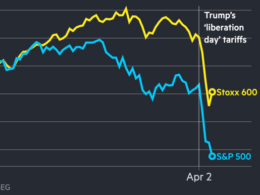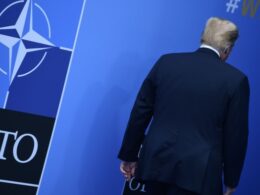Unlock the Editor’s Digest for free
Roula Khalaf, Editor of the FT, selects her favourite stories in this weekly newsletter.
Two of FTI Consulting’s top economics experts in Europe have left to join an upstart rival, expanding the front line in a poaching war costing the company tens of millions of dollars in lost business and higher pay needed to retain staff.
Econic, the economic consulting business launched by former FTI executive Jonathan Orszag earlier this year, has hired Kirsten Edwards-Warren and Enrique Andreu, two longtime FTI experts on antitrust and competition matters, according to people familiar with the matter.
The hires give Econic a presence in Europe alongside US and Chinese practices that are also heavily staffed by people from FTI.
Edwards-Warren, who was FTI’s London-based co-head of Europe, Middle East and Africa economic consulting business, has provided economic analysis in support of mergers including Aon and Willis Towers Watson and IBM and Red Hat. Andreu led the unit’s Brussels office.
Economic consultants provide expert testimony in antitrust litigation and regulatory investigations, including those arising from M&A transactions. The business has become a lucrative niche in the professional services market in the US and increasingly overseas, as competition lawsuits on behalf of consumers have increased in number in the UK and continental Europe over the past decade.
Orszag spent 20 years at FTI after the company acquired Compass, the economic consulting firm he co-founded, but the relationship foundered as Orszag sought a higher profit share for him and his staff. FTI sued him in 2023, accusing him of plotting to start a rival firm. He has countersued and the case is currently making its way through US federal court.
Orszag told the FT that Econic would shortly have 200 employees with about half that total joining from FTI. “We are an equal opportunity poacher from every firm,” he said.
Shares of FTI Consulting have fallen by more than a quarter in the past year, in part because of fallout from Orszag’s departure.
On a call for analysts after FTI’s first-quarter earnings last month, chief executive Steve Gunby said “the financial hit to the bottom line is substantial” as a result of lost revenue and the extra pay and bonuses required to keep existing staff and hire replacements. Close to 10 per cent of the economics division staff had defected, he said.
After earlier this year indicating a $35mn hit to FTI’s 2025 operating profit, the actual cost was now “likely to be higher than that”, he said. FTI had operating income from its five business segments of around $500mn in 2024.
“We do believe that FTI will be able to replace the top-line pressures, but we remain concerned about the cost FTI will pay for the revenue,” Truist analyst Tobey Sommer wrote after the call. “Margins will be something we continue to monitor.”
The problems come at a challenging time for several of FTI’s other businesses, which include corporate restructuring advice, forensic investigations and financial communications. These were being affected by the depressed M&A market and economic uncertainty, the company said last month.
Asked for comment on the European departures, FTI said it had added new staff and built affiliations with academics so that its economic consulting business remained “unparalleled” in the industry.
“We continue to invest in our firm and are a destination for leading talent that builds on our academic roots, including more than 20 affiliates and economists since the start of the year,” it said.
Source link









